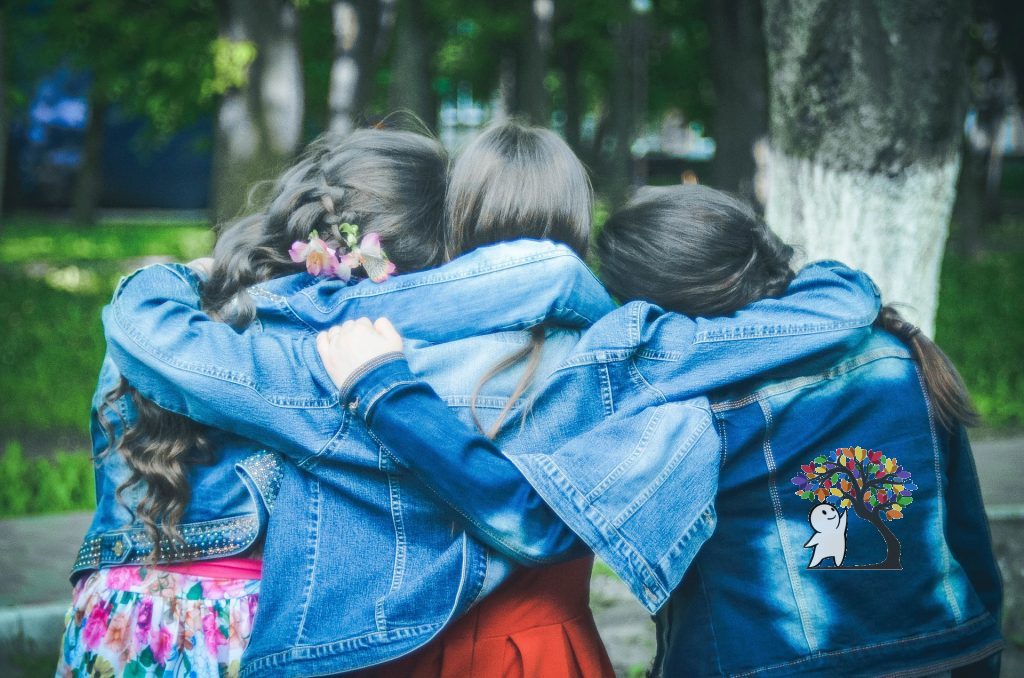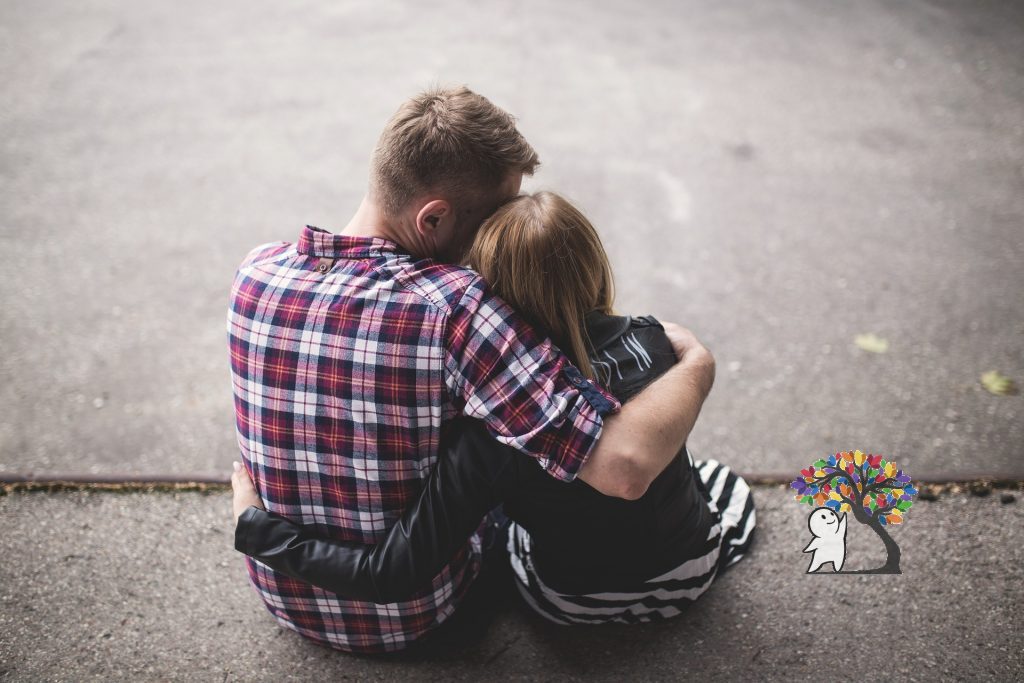7 Reassuring Things To Say To Someone With Anxiety

Hi, I’m Gabrielle. I’m a writer for Psych2go, a recent college graduate, and I struggle with anxiety. I like to say that I’m an open book, but honestly it’s been a challenge to open up about my mental health as I’ve grown up. I’ve noticed that most people don’t know how to react when the topic does come up. While I would never want to force a reaction out of anyone, it can be uncomfortable to watch someone else struggle with what to say when I know they mean well.
It’s taken a lot of trial and error, but I’ve begun to make sense of what helps and what doesn’t when it comes to talking about anxiety. There are many ways to be supportive without overstepping boundaries or taking on more than you can handle. Since I’ve been on both ends of this difficult conversation, I’ve compiled seven reassuring things to say to someone with anxiety.
1. “You have my attention” or “I am listening.”
For me, it means a lot to know that someone is willing to hear me out. I worry that my anxiety makes me hard to talk to or difficult to be around, so hearing this is incredibly reassuring. I’m often too afraid to bring up anxiety-related topics for this reason, but when someone tells me this I feel encouraged to bring it up without hesitation in the future. This makes me feel like whoever is listening truly cares about what I have to say, and it makes me want to return the favor whenever they may need to talk.

2. “What can I do to help you?”
By asking the person in distress what might help, you’re letting them take control of the situation. Ask them to get creative, if they can. Do their plants need watering? Is there anything they’re craving for lunch? Keep in mind, though, that some people like me can actually become more anxious in the wake of decision-making. Sometimes it can feel like one more thing to worry about, but it still gives me a chance to ask for anything I might need. If questions seem overwhelming, try making a suggestion or just being together instead.
3. “Hey, let’s go for a walk. We can talk about it, or we can just get some fresh air.”
A change of environment is one of my favorite tools for interrupting the cycle of anxiety; it throws off my brain just enough to distract it from its worries. Focusing on the world around me helps me distance myself from my thoughts, which ultimately makes them easier to talk about and to let go. If I don’t feel like talking, at least I’ll have something else to occupy my brain with. Even if I don’t want to in the moment, it feels good to get up and move.
4. “Is it ok if I give you a hug?”
Consent is key! Even hugs, hand holding, and other innocent touch can be triggering to someone with anxiety (plus there are a lot of people who just don’t like to be touched), so it’s always important to ask. Sometimes, a hug can be incredibly comforting during a difficult time, like a physical reminder that I am not alone. When I’m extremely anxious, though, being touched can make me feel trapped and claustrophobic, so I always appreciate when someone asks before going in for a hug. It reminds me that I am in control of the conversation and that my needs are just as valuable as those of whoever I am talking to.
5. “I am here for you no matter what is happening.”
It’s nice to hear that someone is on my side, but I can’t help feeling like the encouragement is sometimes conditional. Past friends have promised their support just to disappear when things get tough, so it can be difficult for me to trust others who make this pledge. I know I’m not alone in my hesitation, either. If you’re going to offer to be there for someone who battles anxiety, be honest about what you’re able to do or be ready to be open to whatever comes your way. Authentic support is especially reassuring when you’re able to give it.

6. “Would advice be helpful or should I just listen?”
The first time someone asked me this question, it all clicked. Now I know why I react so intensely when someone starts spouting out suggestions before I’ve even had a chance to finish talking. It might be hard, but you have to fight the urge to be a friend, sometimes. Hugging, joking, and advice-giving might be your first instinct when you see someone you love in distress, but, like me, people with anxiety sometimes feel overwhelmed and even intimidated by the constant fire of suggestions. Instead, asking this question puts the person with anxiety in control of what happens next, which in itself may relieve some of their anxious edge.
7. “I don’t know what to say, but I’m here for you.”
Honesty is always the best policy. Anxiety can be a difficult subject matter, so it’s okay if you don’t know what to say or how to react. Honestly, sometimes I don’t even know what to say, but it’s refreshing and reassuring to be genuine during such a vulnerable conversation. Friends and family have admitted that they fear saying the wrong thing or making situations worse, but I’ve let them know that the important thing isn’t what they say, but that they’re there for me at all.
Sources
Princing, M. (2018, May 18). What to Say (and Not to Say) to Someone with Anxiety. Retrieved July 23, 2020, from https://rightasrain.uwmedicine.org/mind/mental-health/what-say-and-not-say-someone-anxiety
Todd, C. (2018). 5 Helpful Things to Say to a Friend Whose Anxiety Is Skyrocketing (and 3 to Avoid). Retrieved July 23, 2020, from https://www.self.com/story/what-to-say-friend-with-anxiety



Responses